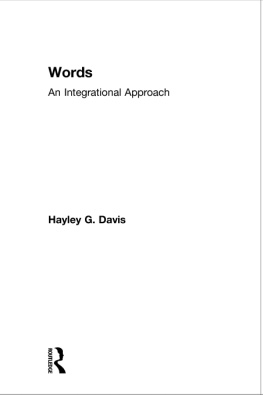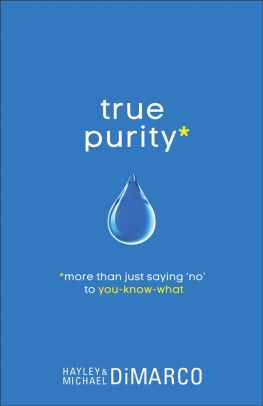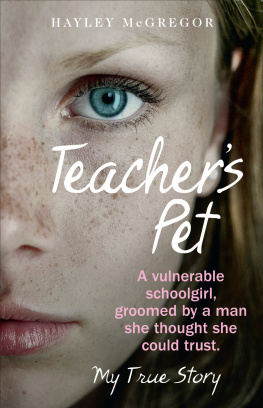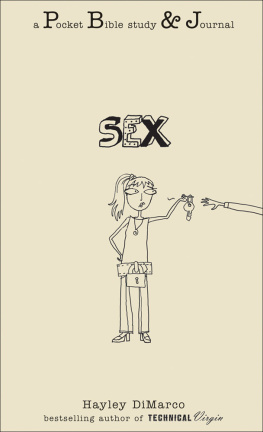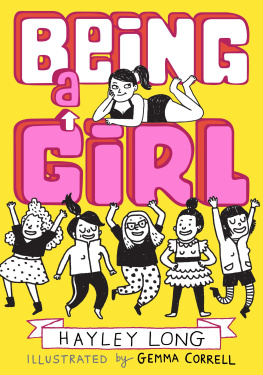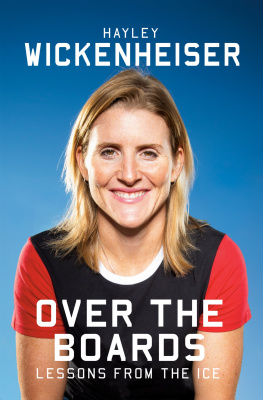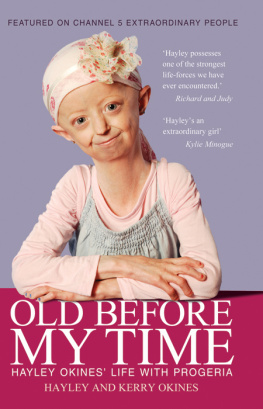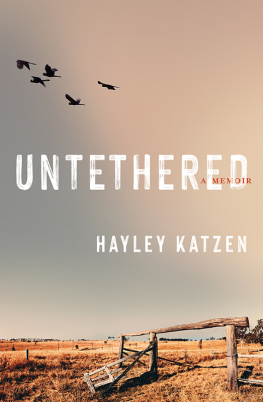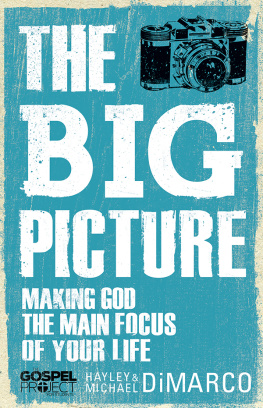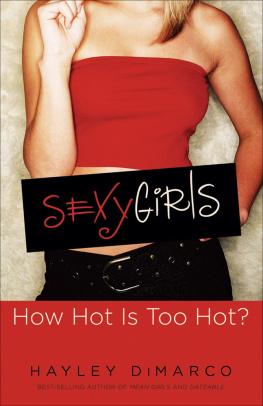Davis Hayley G. - Words - an Integrational Approach
Here you can read online Davis Hayley G. - Words - an Integrational Approach full text of the book (entire story) in english for free. Download pdf and epub, get meaning, cover and reviews about this ebook. publisher: Taylor & Francis Group, genre: Children. Description of the work, (preface) as well as reviews are available. Best literature library LitArk.com created for fans of good reading and offers a wide selection of genres:
Romance novel
Science fiction
Adventure
Detective
Science
History
Home and family
Prose
Art
Politics
Computer
Non-fiction
Religion
Business
Children
Humor
Choose a favorite category and find really read worthwhile books. Enjoy immersion in the world of imagination, feel the emotions of the characters or learn something new for yourself, make an fascinating discovery.
- Book:Words - an Integrational Approach
- Author:
- Publisher:Taylor & Francis Group
- Genre:
- Rating:4 / 5
- Favourites:Add to favourites
- Your mark:
- 80
- 1
- 2
- 3
- 4
- 5
Words - an Integrational Approach: summary, description and annotation
We offer to read an annotation, description, summary or preface (depends on what the author of the book "Words - an Integrational Approach" wrote himself). If you haven't found the necessary information about the book — write in the comments, we will try to find it.
Words - an Integrational Approach — read online for free the complete book (whole text) full work
Below is the text of the book, divided by pages. System saving the place of the last page read, allows you to conveniently read the book "Words - an Integrational Approach" online for free, without having to search again every time where you left off. Put a bookmark, and you can go to the page where you finished reading at any time.
Font size:
Interval:
Bookmark:

WORDS
An Integrational Approach
WORDS
An Integrational Approach
Hayley G. Davis

This edition published 2011 by Routledge
Routledge
Taylor & Francis Group
711 Third Avenue
New York, NY 10017
Routledge
Taylor & Francis Group
2 Park Square, Milton Park
Abingdon, Oxon OX14 4RN
First Published in 2001
by Curzon Press
Richmond, Surrey
2001 Hayley G. Davis
Typeset in Times by LaserScript Ltd, Mitcham, Surrey
All rights reserved. No part of this book may be reprinted or reproduced or utilised in any form or by any electronic, mechanical, or other means, now known or hereafter invented, including photocopying and recording, or in any information storage or retrieval system, without permission in writing from the publishers.
British Library Cataloguing in Publication Data
A catalogue record of this book is available from the British Library
Library of Congress Cataloguing in Publication Data
A catalogue record for this book has been requested
ISBN 070071376X
To Mum and Dad
Contents
Preface
This book coincides with the establishment of The International Association for the Integrational Study of Language and Communication (IAISLC), which was founded in 1998 for the purpose of promoting an integrational approach to the study of language and communication. During July 1998 eight of us Daniel Davis, Roy Harris, Chris Hutton, Nigel Love, Talbot Taylor, Michael Toolan, George Wolf and myself accompanied by partners and offspring, descended upon the French town of Chablis in order to discuss the setting up of an integrationist association. We are all, in various ways, committed to reorienting the study of language by taking into serious consideration the perspective on linguistic matters taken by lay speakers themselves. We all feel, to various degrees, that linguistics is in need of such a reorientation as a response to the now inescapable conclusion that traditional linguistic theory, with its focus on revealing the facts of language in general cannot handle the necessary indeterminacy of what is said and understood. Integrationists insist that in order to understand language we must consider how it is actually used and understood by individual language users.
In order to show how this approach is viable, I have focused on the uses to which English speakers on the one hand, and linguistic theorists on the other, put the word word. This type of analysis also serves as an example of the more general contrast between how an average person and how a professional linguist treats metalinguistic remarks. To investigate the views of lay speakers I have employed an ask-the-speaker methodology, using fieldwork and interview techniques. This study is the first attempt to make such an analysis and to draw the relevant theoretical conclusions concerning the status of the linguistic units in question.
looks at the influence of literacy on both professional linguists and laypeoples metalinguistic judgements.
I thank all those who agreed to be my informants. Your names have been changed but Im sure that you will recognise yourselves. I should also like to thank Ron, the landlord of the Happy Man, who allowed me to interview some of his drinkers.
I would also like to thank the members of IAISLC named above who have, in the past, commented on parts, or in the cases of Roy Harris, Nigel Love, Talbot Taylor and Michael Toolan, on the whole of this work. A special thanks goes to Roy Harris, without whom this book, which began its life as a D. Phil. thesis, would never have been realized. I am also grateful to Chris Wells for his helpful comments on early drafts of this work. My love and appreciation also extends to Chris Baldick and Bethany for everything.
I also thank my other children Joshua, Zoe and Ella for their patience: perhaps they will read this one day and understand why I was asking them such silly questions.
Abbreviations
| BB | The Blue and Brown Books, Wittgenstein 1958 |
| CLG | Course de linguistique gnrale, Saussure 1922 |
| COD | Concise Oxford Dictionary |
| OED | Oxford English Dictionary |
| PG | Philosophical Grammar, Wittgenstein 1974 |
| PI | Philosophical Investigations, Wittgenstein 1958 |
| PR | Philosophical Remarks, Wittgenstein 1975 |
| TLP | Tractatus Logico-philosphicus, Wittgenstein 1972 |
1 Orientation: The Word of Linguistic Theory
The main themes and objectives of this book are to reorient the study of language by taking into serious consideration the perspective on linguistic matters taken by lay speakers themselves. The incorporation of such a folk theoretical methodology would bring linguistics into line with the trend in related social science disciplines (e.g. psychology, anthropology, and sociology) to assign a central methodological importance to the irreducibly interpreted and negotiated character of human behaviour and interactional events. Linguistics, in particular, is in need of such a reorientation as a response to the now inescapable conclusion that traditional linguistic theory, with its focus on revealing the facts of language in general cannot handle the necessary indeterminacy of what is said and understood. Furthermore, incorporating a folk-theoretical approach, it will be argued, is a necessary amplification of language study since it is by the expression of their own reflexive understandings that lay speakers are able to impose regularities and constraints upon language use: regularities and constraints which cannot therefore be explained without reference to those understandings.
This proposed reorientation, involving an ever shifting perspective, therefore demands that we reconceive how we approach metalinguistic and metacommunicative issues, since language, word and meaning etc. are not super-concepts pre-existing their ordinary uses by ordinary speakers (Wittgenstein 1951).
Since the concept of the word is central both to linguistic theory and to the vocabulary of a native English speaker, the , an ask-the-speaker methodology is employed, using fieldwork and interview techniques. This study is the first attempt to make such an analysis and to draw the relevant theoretical conclusions concerning the status of the linguistic units in question.
The Word of Linguistic Theory
The questions what is a word?, or how are we to define a word? have, in the past been a matter of serious concern to many linguistic theorists. However, such concerns rarely, if at all, feature in the talk of ordinary people. Even children could sensibly be expected to define and distinguish between sentences and clauses at school, but would rarely find themselves in situations appropriate to answering such metalinguistic questions as what is a word?, or can you define a word?. In short, ordinary speakers who are familiar with the concept word need to enquire into its uses or definitions only if playing a game with rigid (non-negotiable) rules like Scrabble (em is a word its in Websters New World Dictionary, defined as the thirteenth letter of the alphabet) or performing an activity such as a word-count for an assessed essay (do we count hyphenated words such as non-literary as one word or two?). This is why ordinary speakers might well be baffled if they knew some of the activities linguists got up to: defining a word in order to contribute to the science of language.
Next pageFont size:
Interval:
Bookmark:
Similar books «Words - an Integrational Approach»
Look at similar books to Words - an Integrational Approach. We have selected literature similar in name and meaning in the hope of providing readers with more options to find new, interesting, not yet read works.
Discussion, reviews of the book Words - an Integrational Approach and just readers' own opinions. Leave your comments, write what you think about the work, its meaning or the main characters. Specify what exactly you liked and what you didn't like, and why you think so.

